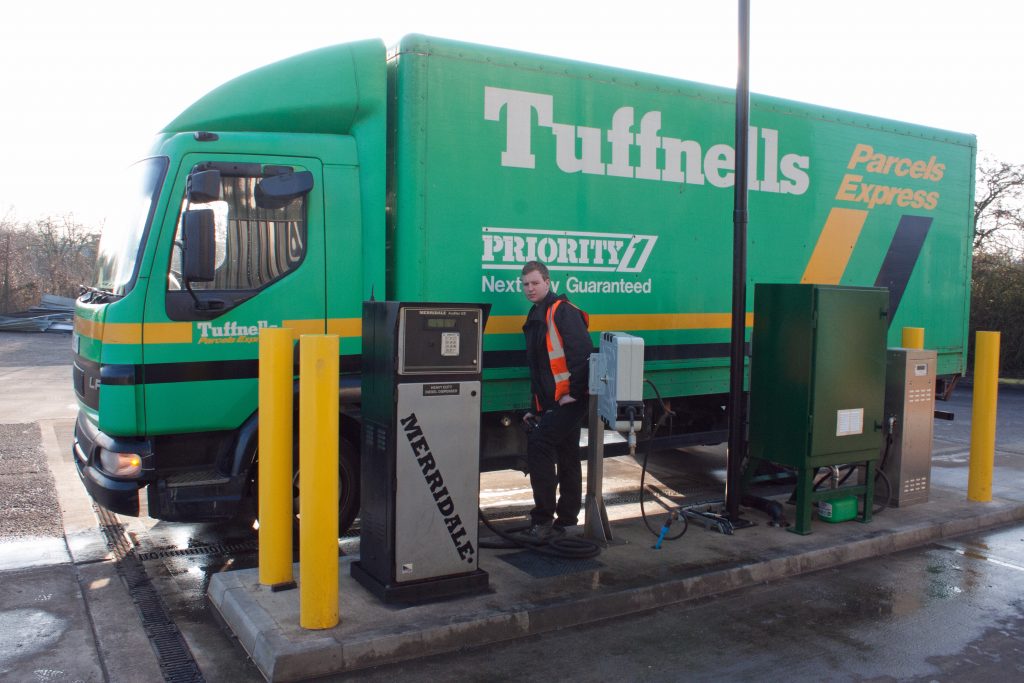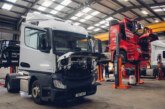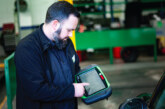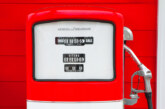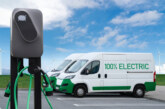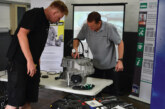Stephen Hannan, Merridale Sales Director, explains to CVW how to take advantage of the ‘economies of scale’ with depot fuelling.

Fleet refuelling is a crucial on-cost for any business enterprise operating commercial vehicles. For fleet managers, there are a range of options depending on the specific operational requirement. Retail forecourts and truckstop fuel bunkering services with key cards are designed for low volume requirements, such as start-up fleets or on the road fuelling for vehicles unable to reach their home base.
But as the scale of business operations continue to expand, it will become increasingly more cost effective to purchase fuel directly from the oil companies. There comes a point where the initial outlay for a bulk storage tank and associated dispensing equipment should pay back within a relatively short period of time. A high-mileage fleet operator can afford to shop around and take advantage of lower spot prices.
In addition to savings on the cost of fuel, depot facilities allow business owners far greater control. Systems can be implemented to collect data and monitor fuel usage automatically. Depot fuelling also allows better productivity, as drivers’ time can be managed more efficiently. Also with single product diesel fuelling points, the possibility of missfuelling company vehicles is eliminated.
Having made the decision to install depot fuelling, the fleet operator should take into account that this is a long-term investment. The overall cost of ownership is therefore just as important as the initial purchase price. Even for a medium sized fleet, the value of stock passing through the fuelling point year-on-year will be measured in tens of thousands of pounds.
Availability should be the watchword. In most markets the range of fuelling systems on offer varies, not only in terms of quality but also in terms of after sales support. Fuel management solutions have also evolved to include web-based services. These are subscription based arrangements in which the supplier of the fuelling equipment shares a commercial interest in the ongoing reliability of your depot installation.
There are four key elements to focus on when keeping your fuelling equipment fit for purpose:
1. Buy quality products
Buy once and get it right first time. Buy quality products that are much more reliable and last longer than the cheaper alternatives. The initial extra investment will pay back in terms of reliability, as well as
economy, by avoiding frequent and often costly emergency callout repairs.
2. Buy compatible products
Equipment failure and consequential downtime will impact your business profitability and reputation for customer service. Nothing is more frustrating than finding your equipment supplier is unable to deal with a simple pump malfunction, or the serviceability of your fuel or tank management systems. A
planned approach to maintenance will ensure 100% availability, in other words; ready to go at all times.
Don’t risk your reputation by entrusting this to freelance repair services. They may appear cheaper on paper but very few invest fully in the diagnostic knowledge or the correct level of spares needed to achieve prompt first time repair.
A ‘mix and match’ approach to purchasing does not take into account the differing design and business aims of each component manufacture. Furthermore, situations often arise where one or more of the individual equipment manufacturers could withdraw its support for certain components, long before the overall package itself becomes unsupportable. Fleet operators can protect themselves by purchasing only from a recognised supplier – more specifically, one which designs and manufactures a full range of equipment, purposely conceived to be fully interchangeable. This built-in compatibility is by far the best insurance for long life and reliability.
3. Consider what your options are when equipment fails
Even the best equipment will fail eventually. Taking advantage of the manufacturer’s extended warranty scheme entitles the owner to all the protection that was offered with the original product. The equipment manufacturer has a vested interest in ensuring that the equipment it provided continues to meet customer’s expectations and will therefore provide the best possible service.
Extended warranty schemes are also a great way to ensure that a fleet operator can budget a fixed price for service availability – thereby removing any unscheduled costs and emergency call out rates. The best extended warranty schemes will offer additional benefits, such as reduction in charges for work outside of warranty or for the purchase of further equipment and ancillaries.
If you choose not to purchase an extended warranty, there is an option to request the original manufacturer to provide this support on an ‘as required’ basis. Most manufacturers will commit to providing the same level of service that you would expect to be provided under an extended warranty scheme, provided that such a commitment has been agreed. Whilst this removes the fixed cost protection element, the fleet operator can be certain of receiving first class diagnostics and genuine manufacturer approved spares.
4. Regular service and calibration
There is a growing appreciation that to achieve 100% availability, the equipment has to be serviced regularly and maintained to the best possible condition – this includes regular calibration. In some instances, this may even be a legal obligation.
Adjustments to the mechanisms, especially the meter units, will be essential in order to compensate for equipment wear in normal service. All equipment should be serviced and calibrated on a regular basis. The general recommendation for Merridale equipment is once per year. Components such as drive belts, which have a designated life cycle, would normally be replaced during servicing. This would also include checks on other key components in order to identify any potential weakness, as a timely replacement will cost far less than emergency call out.
The aim is to reduce unscheduled service calls. Your service provider will be happy to recommend a planned maintenance programme that will minimise any inconvenience of downtime to your facility.
Case study
Branded ‘Big Green Parcel Machines’, Tuffnells Parcels Express vehicles are a familiar sight on British roads. The company continues to update and expand its operational network and there are plans to open six new depots during the next two years.
“Fuelling the road transport fleet is key to the company’s commitment to reliability,” explains Head of Management Services, David Emsen.
“We want to ensure that the business has absolute control of this vital resource. This includes the provision of a contingency buffer against any possible disruption of fuel supplies because of events beyond our influence.”
David continues: “We have made the switch over to Merridale FuelWorks, which is a common web-based platform serving the entire network. This means that the driver of any Tuffnells vehicle can
draw fuel at any of the group’s depots. As well as tightening up fuel usage monitoring, this measure has eliminated the risk of unauthorised fuelling, by taking out the need for a ‘visitors’ key.
“Fuel is now being procured on a group basis and the depots are charged on the usage of their vehicles, irrespective of where they fuelled. Depots are required to monitor stock levels and inform the head office when to reorder. We have achieved further economies by installing larger tanks at the hub depots. This
additional capacity enables us to obtain best possible bulk prices for complete tanker deliveries instead of partial loads.”
